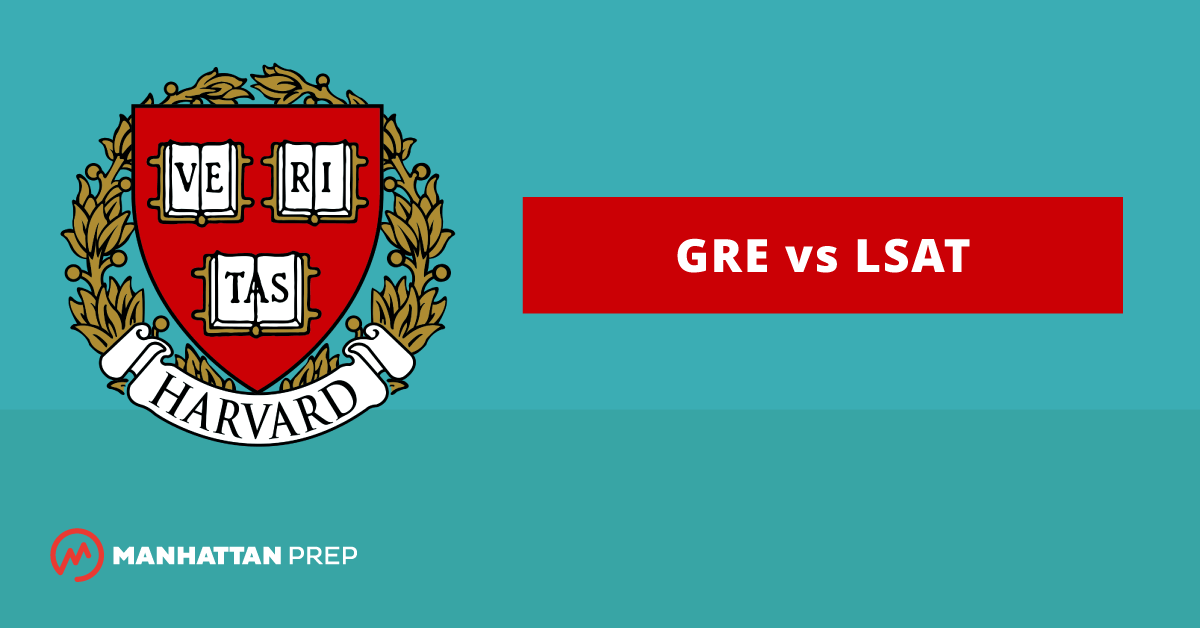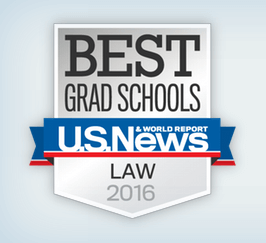A Running List of All Law Schools that Accept the GRE

Ready to study the right way? We incorporate the latest discoveries in learning science into our LSAT course to maximize the efficiency and effectiveness of your prep. Want to see? Try the first session of any of our upcoming courses for free.
The number of law schools that accept the GRE in lieu of the LSAT has been rising steadily. After preliminary studies suggested that GRE scores might be as indicative as LSAT scores in predicting student performance in law school, the GRE has gained traction as an LSAT substitute. Many school officials hope that accepting GRE scores will make law school more accessible to a diverse group of students. Read more
SEO Law Diversity Fellowship Program Helps Students Prepare to Succeed in Law School

Since 1986, over 1,300 interns have gone through the SEO Law Diversity Fellowship program, which links talented, underrepresented incoming law students to elite global law firms. In this exclusive post, SEO Law explains how the Fellowship Program helps law students excel before, during, and after law school. You can apply here now!
What Happens After You Get into Law School?
Aspiring law students know what it takes to gain acceptance to the school of their dreams: studying for and conquering the LSAT, crafting a strong personal statement, and crushing the interview. But what about preparing to succeed at law school and afterwards? What steps can you take before and during school to ensure you maximize your law school experience and secure a job in corporate law? These are critical questions. But, unfortunately, they can become an afterthought for incoming law students.
For over 30 years, the SEO Law Diversity Fellowship Program has helped diverse incoming law students prepare for the academic rigors of law school and jumpstart their legal careers. Here are a few tips we’ve learned along the way. Read more
Harvard Law School Now Accepts the GRE for Admission

You read that right. Read more
The Growing LSAT vs. GRE Debate in Law School Admissions
 We incorporate the latest discoveries in learning science into our LSAT course to maximize the efficiency and effectiveness of your prep. Want to see? Try the first session of any of our upcoming courses for free.
We incorporate the latest discoveries in learning science into our LSAT course to maximize the efficiency and effectiveness of your prep. Want to see? Try the first session of any of our upcoming courses for free.
Here’s the situation: The University of Arizona College of Law recently started accepting GRE scores in addition to LSAT scores from applicants for admission. Last week, The Wall Street Journal covered the move and the LSAC’s subsequent threat to ban the school from membership. Then, just yesterday, news broke that 148 deans of LSAC member law schools sent a letter to the LSAC’s president in support of Arizona Law. The issue has raised many pertinent questions about the merits of each test relative to the other as barometers for law school fitness. We wanted answers, so we turned to Mary Richter, LSAT (175) and GRE (166Q/168V) instructor and graduate of Yale Law School. Here’s what she had to say: Read more
The Week in (Law) Review – November 6, 2015 LSAT Roundup
 All things LSAT-and-law-school-related from the past week, for your niche media consumption delight.
All things LSAT-and-law-school-related from the past week, for your niche media consumption delight.
Harvard Law professor: “Don’t baby law school applicants”
The Week in (Law) Review – October 23rd, 2015 LSAT Roundup
 All things LSAT-and-law-school-related from the past week, for your niche media consumption delight.
All things LSAT-and-law-school-related from the past week, for your niche media consumption delight.
U.S. News issues erroneous surveys, potentially invalidates Law School Rankings results 
The Week in (Law) Review – October 16th, 2015 LSAT Roundup
 All things LSAT-and-law-school-related from the past week, for your niche media consumption delight.
All things LSAT-and-law-school-related from the past week, for your niche media consumption delight.
Local woman narrowly averts disaster, becomes lawyer rather than librarian 




The Week in (Law) Review – October 9th, 2015 LSAT Roundup
 All things LSAT-and-law-school-related from the past week, for your niche media consumption delight.
All things LSAT-and-law-school-related from the past week, for your niche media consumption delight.
Law school applications on the rise 
A recent survey determined that 88% of law school admissions officers at 120 law schools across the U.S. are predicting a rise in applications for the first time in years. One possible explanation for this optimism is that, due to the relatively smaller number of top students currently applying to law school, there has never been a less competitive time to get into a top program; if law school has been on your bucket list, now would be the time to pursue it. Read more
Law School News: US News 2016 Law School Rankings Released
 U.S. News & World Report yesterday released the 2016 Best Graduate School rankings. Like our friends at jdMission have reminded us, all rankings should be approached with skepticism and that “fit” (be it academic, personal or professional) is far more important.
U.S. News & World Report yesterday released the 2016 Best Graduate School rankings. Like our friends at jdMission have reminded us, all rankings should be approached with skepticism and that “fit” (be it academic, personal or professional) is far more important.
That said, here’s how the top 15 American law schools stack up this round:
1. YaleUniversity
2. Harvard University
3. Stanford University
4. Columbia University
4. University of Chicago
6. New York University
7. University of Pennsylvania
8. Duke University
Read more
NY Times Review: Is Law School Really A Buyers’ Market?
 Application season is well under way, and early decisions are starting to roll in. Before you know it, the New Year will be here and it’ll be time to finally choose a law school.
Application season is well under way, and early decisions are starting to roll in. Before you know it, the New Year will be here and it’ll be time to finally choose a law school.
I know, I know. It seems like just yesterday you were first cracking open that LSAT study guide, so young and naïve. Scared of what the future held; scared of what your score would be. And scared that you’d be rejected from every law school to which you applied.
However, a recent NYT article points out exactly how misguided you might be—could law school really be a buyers’ market?
SUMMARY
Professor Rodriguez of Northwestern University School of Law says, “It’s insane,” and I agree. We do, however, disagree on what aspects of law school tuition are insane.
According to the article, the number of people taking the LSAT is down over 50% from 2009, and the incoming class of first-year law students is the lowest it’s been since the ’70s. Law schools have reacted in a number of ways, including cutting employees, faculty, and even entire campuses (see Thomas M. Cooley Law School). And many now rely on their parent school to keep them afloat (a stark contrast to the previous decade where these schools were viewed as geese laying golden eggs).
As Professor Rodriguez points out, law schools are now battling over top students. In order to keep their GPA/LSAT numbers up, schools are pulling from an increasingly small pool of candidates with high scores. To do so, they’re negotiating until almost the first day of classes, increasing scholarship amounts to match or beat competing schools. “It’s insane,” he claims, to need to fight with these other schools for students.
I would rebut that it’s insane tuition at his school has increased $9,000/year during this same time period.
THOUGHTS/ANALYSIS
So is law school a buyers’ market, or is that a bit of editorial license taken by the writer?
Law school is a service, and the goal of that service is to get you a job as a lawyer. Because of the financial crisis, legal jobs are a lot scarcer (though they do still pay staggeringly large salaries). And despite fewer positions being available, the amount of work hasn’t decreased that much. This translates to even longer hours than pre-crisis (in other words, the jobs are even less pleasant).
I’m glad to see the article use the “nine months after graduation” metric to measure employment, as other numbers tend to be gamed by law schools who hire their grads to inflate their stats. It’s still important to recognize, however, that 57% doesn’t represent people working at Big Law, or even the public sector. A large percentage also ends up at smaller firms, earning nowhere near the $180K/year salaries most young lawyers dream of. The amount of work, though, is about the same.
So, in short, the “service” being provided by law schools is coming down in value. At the same time, their supply of new students is drastically dropping. And most numbers being reported suggest that the largest drop in applicants is coming from the top of the LSAT pool (see the decline in LSAT averages of even top schools). All in all, it is a good time to be.
HOW TO USE
Emily Trieber is exactly right—treat the relationship as a business contract.
When you first apply, the relationship is extremely asymmetric—you desperately want to be admitted, and they have all the power. However, after you’re admitted, the dynamic shifts. You’re their customer, and they’ve already told you they want your business. It’s hard to shift your view after spending so long hoping for any letter of admission, but it’s important to change your perspective so you graduate with as little debt as possible. And with a few other schools also interested in you as a customer, it’s time to negotiate.
It’s always best to get in touch with the school via phone (or in person, if you can make a visit). Be honest with them about your offers from other schools, but use those offers to leverage better terms from preferred schools. And always be willing to ask—no one has ever had their offer rescinded for politely requesting a lower tuition bill.
That’s really the key—treat the relationship as business one, which entails courtesy. The schools know that tuition is expensive and scholarship offers are on the rise. They also know that applicants are an increasingly rare commodity. Use this to your advantage and don’t accept sticker price as what you have to pay if you want to go to a particular law school. They’ve already told you they want you as a student; now, tell them that, in order to make that happen, they’re going to have to make you a better offer.
